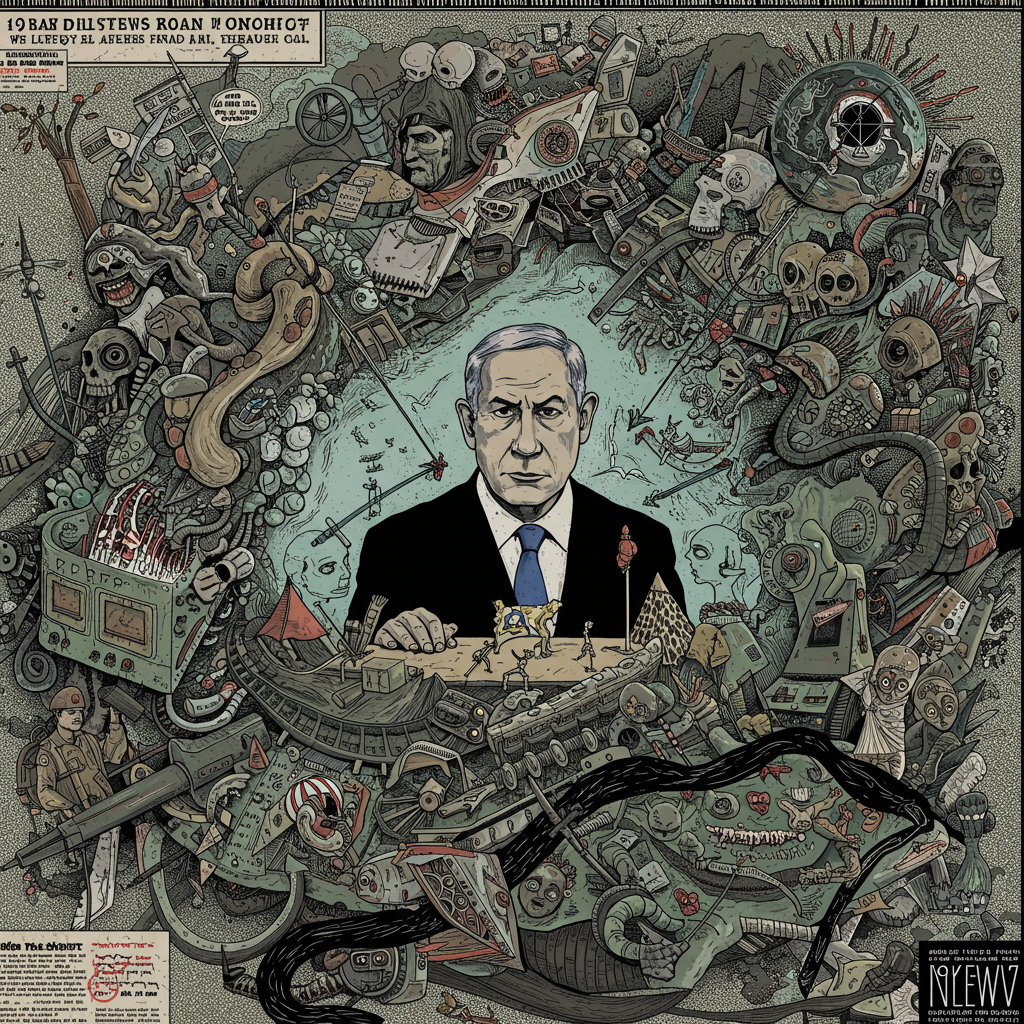The escalating conflict between Israel and Iran, orchestrated primarily by Israeli Prime Minister Benjamin Netanyahu, represents a dangerous turning point with profound regional and global implications. What began under the shadow of intense international scrutiny over events in Gaza has rapidly morphed, seemingly serving less as a defensive measure and more as a means for political survival and potentially long-held strategic ambitions.
Initially presented as a necessary pre-emptive strike against Iran’s alleged imminent acquisition of a nuclear bomb – a claim notably at odds with US intelligence assessments – the objective has visibly shifted. Prominent Israeli figures now openly discuss regime change in Tehran, targeting leaders like Ayatollah Ali Khamenei.
Netanyahu’s Calculation and Shifting Aims
For Prime Minister Netanyahu, conflict appears to be both a process and a political life raft. Amidst pressure regarding actions in Gaza, he launched the attack on Iran, a move some analysts suggest was long-planned. The timing may have been opportunistic, potentially facilitated by a confluence of factors including a perceived weakening of Iranian allies like Hezbollah and favorable conditions like open air corridors. There’s also speculation that Netanyahu may have acted to preempt potential diplomatic overtures between the US and Iran.
This expansive goal of regime change, however, raises serious questions about strategy. Critics point to a glaring lack of planning for the “day after,” drawing unsettling comparisons to the misguided notion of a “cakewalk” before the 2003 invasion of Iraq. Doubts also exist about Israel possessing the specific military assets, such as advanced bunker-busting bombs, needed to neutralize Iran’s deeply buried nuclear facilities, leading some to believe the strikes are intended partly as provocation to draw the United States further into the conflict.
Ultimately, critics argue that Netanyahu, like his US counterpart Donald Trump, consistently appears to prioritize personal political imperatives over the best interests of their respective nations.
Trump’s Shifting Stance and the “Law of the Jungle”
US President Donald Trump has publicly expressed a desire to keep America out of foreign wars, famously stating success should be measured by wars ended or avoided. Yet, Mr. Netanyahu’s maneuvers, coupled with Trump’s own distinctive foreign policy approach, seem to be drawing the US towards greater intervention.
Trump’s philosophy has often been characterized as a “law of the jungle,” prioritizing transactional power and coercion over traditional alliances and international norms. This worldview, which has seen his administration take aggressive stances against international bodies like the International Criminal Court (ICC) and use tools like tariffs as political weapons rather than purely economic ones, may see value in a display of strength or a strategic “deal” facilitated by military leverage. Israel’s request for advanced US military capabilities fits this “might-is-right” framework. While intervention risks alienating some of Trump’s political base, particularly due to potential spikes in energy prices, the appeal of decisive action could outweigh such concerns.
This shared tendency to subsume national interests to personal or ideological agendas creates a volatile dynamic in the region.
The Soaring Human and Regional Cost
The human toll of this escalation is already tragically high, with hundreds of civilians reportedly killed. While the theocratic regime in Iran is widely viewed negatively, military action aimed at “bombing them to freedom” carries immense risks for the Iranian populace, echoing the unforeseen and destabilizing consequences of the 1979 revolution and the 2003 Iraq invasion. Israeli civilians, too, now face the direct threat of Iranian retaliation.
Beyond immediate casualties, the reckless pursuit of conflict risks spiraling out of control. Experts warn of potential outcomes including widespread regional instability, civil conflict within Iran, and significant global economic disruption, particularly impacting energy markets and overall growth prospects.
Legal Questions and International Inertia
Serious concerns have been raised regarding the legality of Israel’s actions under international law. Legal experts, including figures like the UK Attorney General, have reportedly warned against British involvement beyond defensive support, questioning whether the strikes meet the criteria for necessary and proportionate self-defense under the UN charter. Pursuing expansive aims like regime change appears to go beyond these legal norms and risks setting a dangerous precedent for unilateral action by powerful states.
The international community’s response has been largely criticized for its inertia. European leaders, initially hesitant to voice strong concerns about Gaza, have remained notably muted since the strikes on Iran began. Some, like the German Chancellor’s controversial remark suggesting Israel was doing “dirty work for all of us,” have drawn particular condemnation, especially given the potential repercussions for Europe from regional destabilization, energy price hikes, and potential refugee flows.
Finding a Path Out
Despite the perilous trajectory, avenues for de-escalation and negotiation still exist. Calls for diplomatic engagement to address Iran’s nuclear program persist, and communication channels, however fragile, have reportedly remained open between representatives from Iran and the US.
However, the window for these potential escape routes is threatened by the leaders driving the conflict. Allowing personal political ambitions and a preference for confrontation over diplomacy to dictate strategy risks closing off all viable paths, trapping the region in a conflict with no clear exit and potentially catastrophic consequences for all involved.


